
Dariya Artsymyeyeva: how an EU programme connected a village teacher with schools around Europe
Dariya Artsymyeyeva has been working as an English teacher in Novopillya secondary school, near the Ukrainian city of Kryvyy Rih, for 12 years.
“I have always wanted to do more than a village school could offer, but not in terms of changing a place of employment, but [rather] to open something new for myself and my students,” Dariya says.
In 2014, she came across a post about the eTwinning Plus programme on a social network. The programme offers the opportunity to implement international projects and speak foreign languages with other European schools.
“This may be an exchange of letters, both regular and electronic, participation in conferences, exchange of post cards, toys, etc.,” explains Dariya.
The teachers get involved in the project work with teams of students. “We make groups each year and look for a project in which we want to participate. Projects can be short-term, long-term, based on various age groups. Subjects can be different as well.”
Any teacher who can speak a foreign language, or even anyone who can get support from their colleagues to communicate, can take part in the project.
“As a teacher working in the village school, the programme opens [up] the entire world to me: eTwinning Plus gives me a chance to express myself before Europe. I can show the Ukrainian children that everything is possible, that they can do it, they only have to try.”
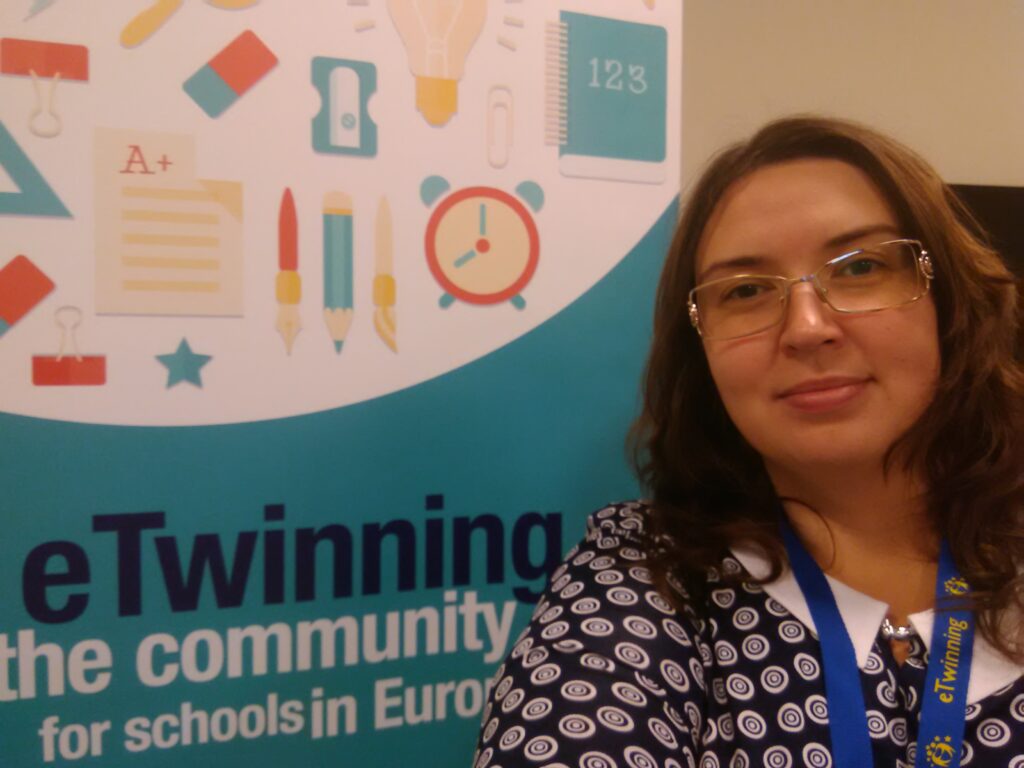 Dariya Artsymyeyeva
Dariya Artsymyeyeva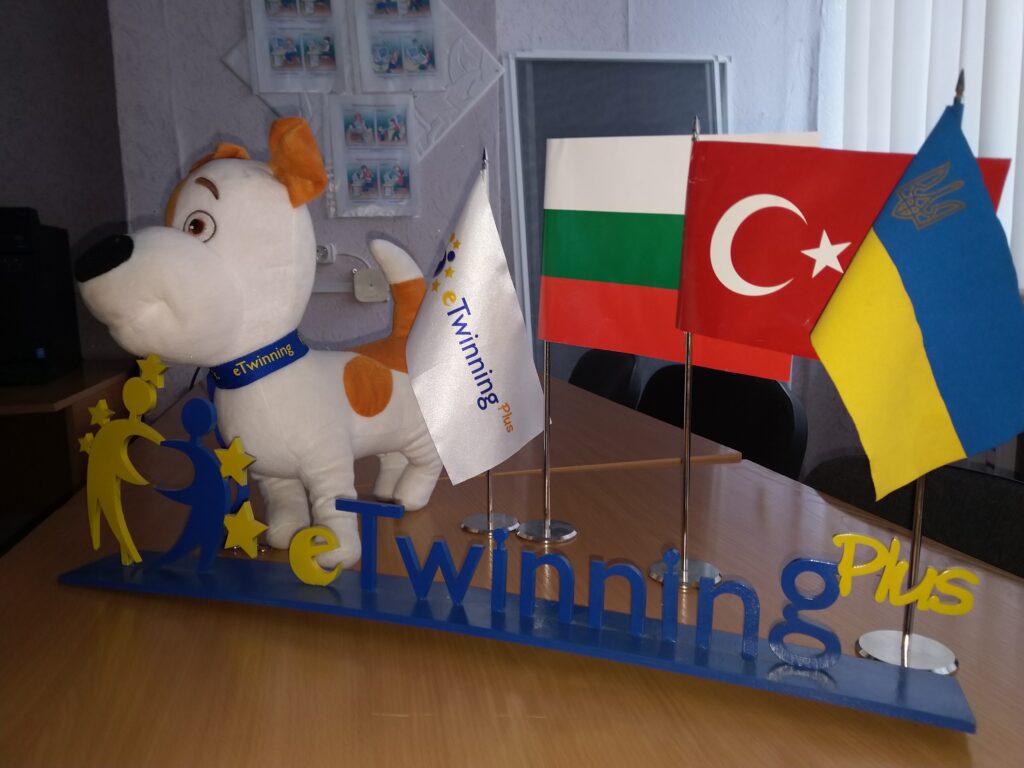 eTwinning Plus logo
eTwinning Plus logo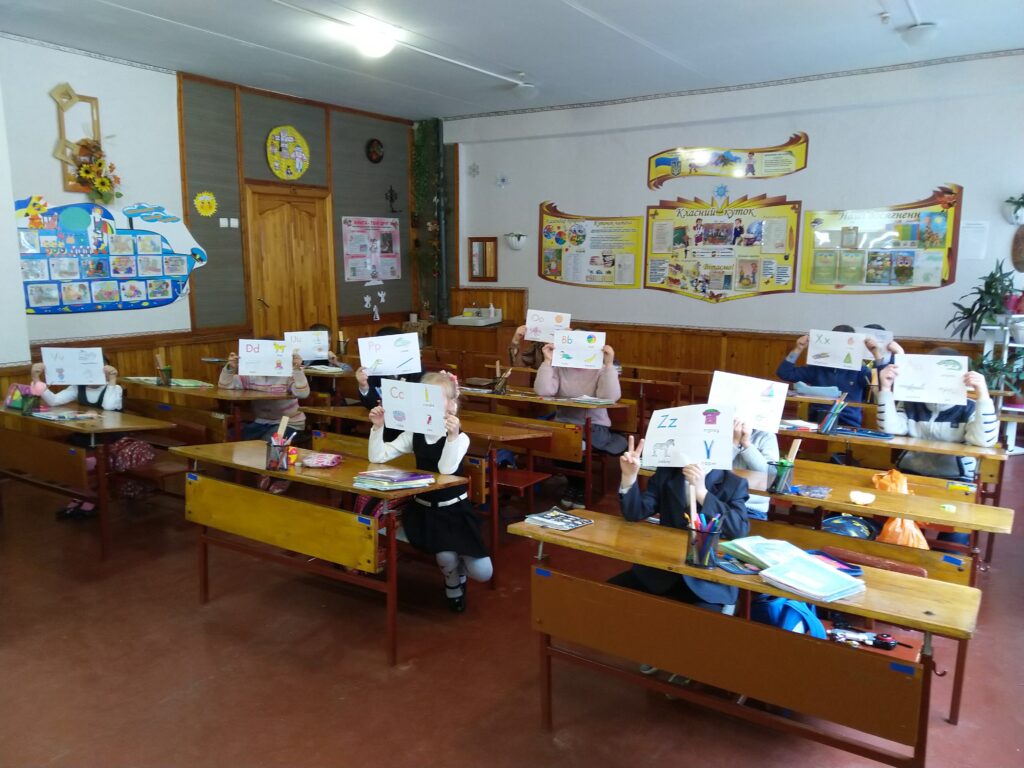 Pupils at the school where Dariya Artsymyeyeva teaches
Pupils at the school where Dariya Artsymyeyeva teaches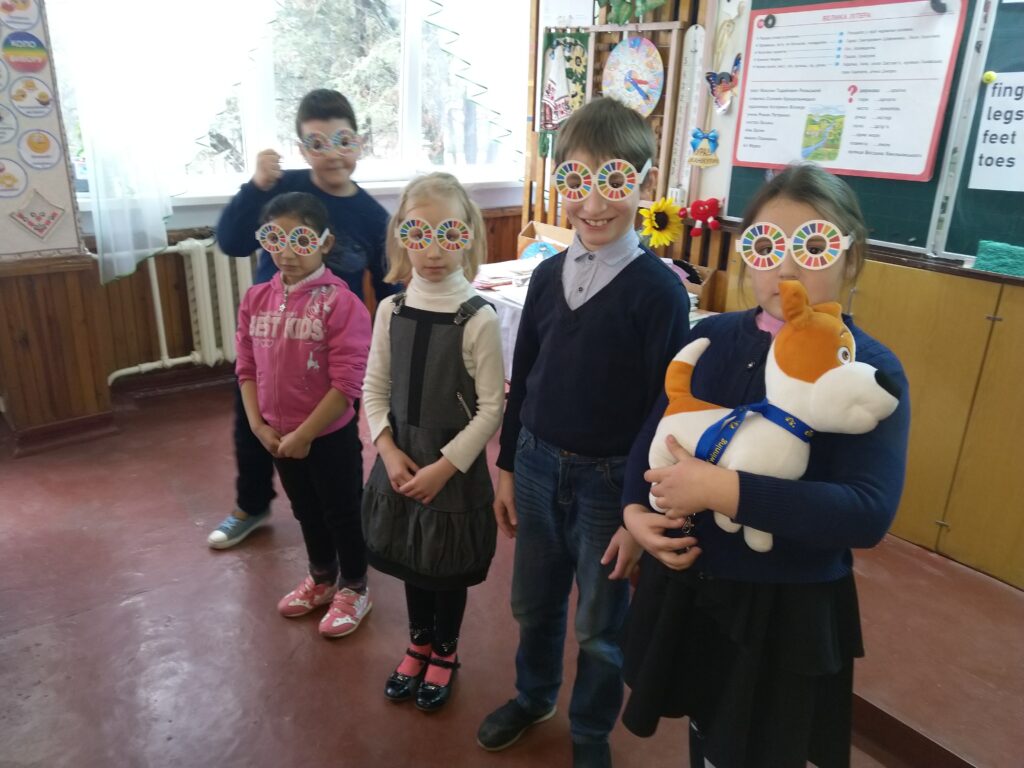 Pupils at the school where Dariya Artsymyeyeva teaches
Pupils at the school where Dariya Artsymyeyeva teaches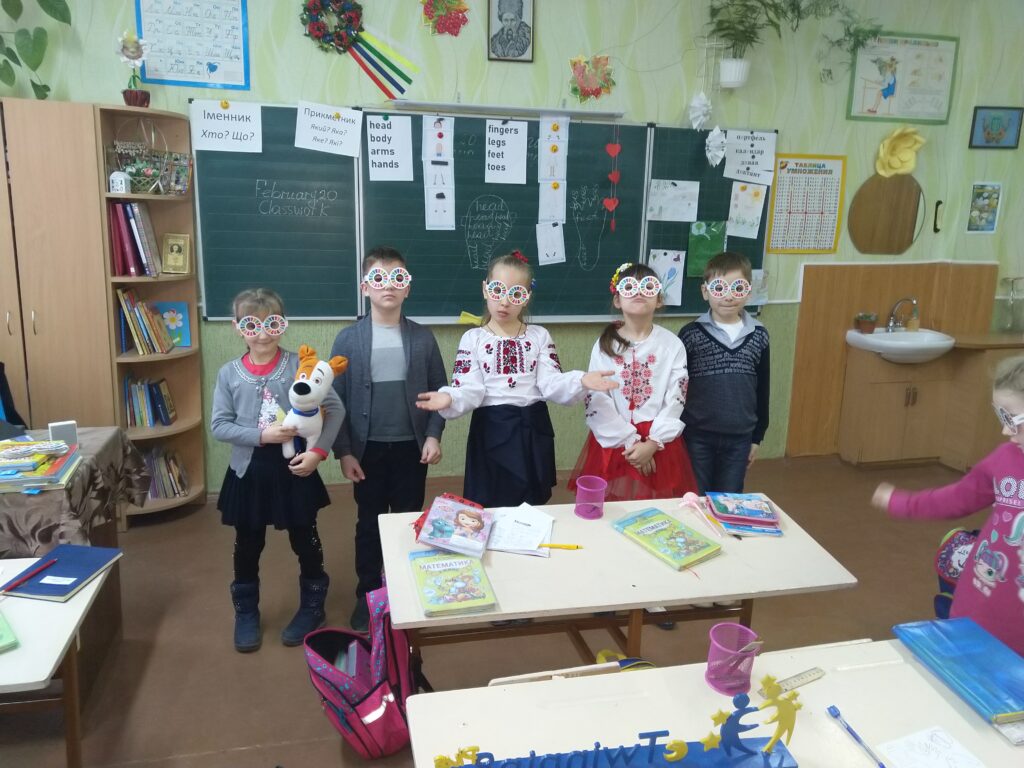 Pupils at the school where Dariya Artsymyeyeva teaches
Pupils at the school where Dariya Artsymyeyeva teaches
The European programme provides a kind of social network, a platform where the teachers participating in the programme can speak with each other, the schoolchildren and share their experience and knowledge.
“The European programme gives powerful motivation for professional development. A few field sessions are held each year. All expenses for travel, accommodation and food are covered,” says Dariya.
There are also webinars, online courses and seminars for professional development. They are completely free of charge and provide a certificate at the end.
Teachers can apply for the national award with their own projects and later for the European award too, although requirements for the European award are stricter.
Dariya received the national award for a joint project with Turkey devoted to the subject of peace.
“We had students from Ukraine, Poland, Bulgaria and Turkey make birds of peace; they wrote English slogans urging to support peace. Each country sent the birds and organised exhibitions. Within the framework of the project, children also sang songs and exchanged them with each other.”
The teacher explains that children learned about the symbols and cultures of other countries as well: “For instance, in Ukraine, the coming of spring is celebrated with Maslyana (an Eastern Slavic religious and folk holiday, celebrated during the last week before the Great Lent) and birds coming back from the south. And in Bulgaria, the most traditional symbol is grandmother Marta. Our children had great fun learning about their traditions and learned a few words in Bulgarian.”
Dariya and the schoolchildren also learned to say “thanks” in Turkish and Polish.
She emphasises that the project provides equal access to education: children going to village schools receive the same possibilities for education as those who attend the “cool” lyceums in the capital. Finally, being able to speak with Europeans “as equals” enables them to overcome any obstacles they face in their search for knowledge.
Author: Uliana Bukatiuk
MOST READ
SEE ALSO

‘The Kremlin has entered the chat’: how to protect your personal data on Telegram and avoid the bait of propaganda

No, time is not on Russia‘s side
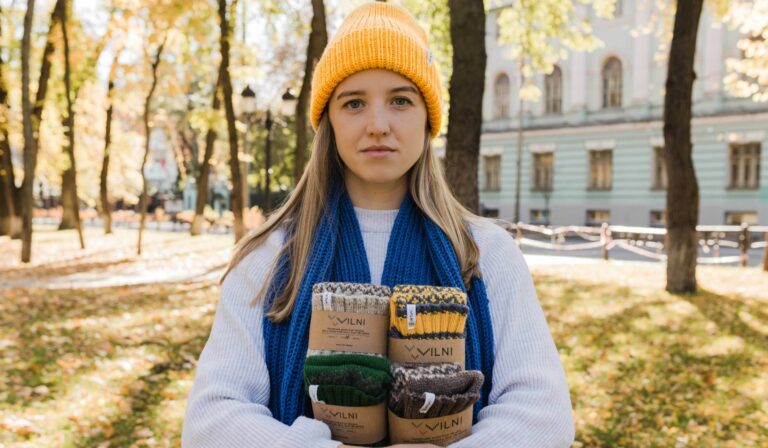
Socks for Peace: how the Vilni project is supporting internally displaced women in Ukraine
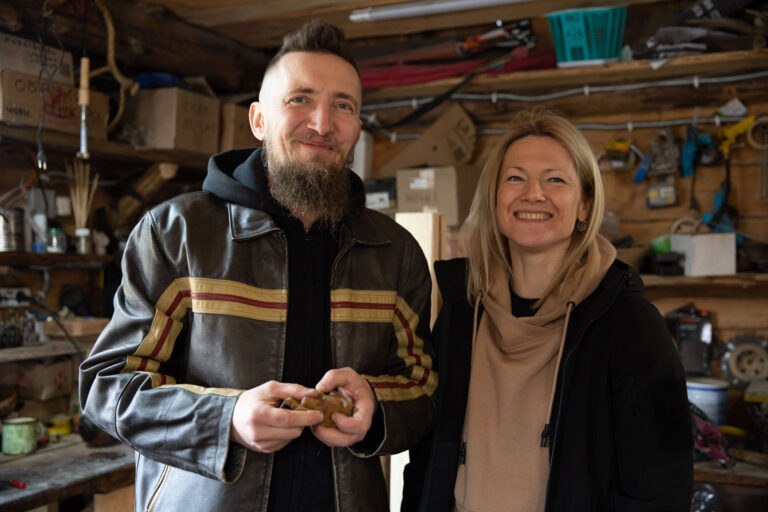
Celebrating traditional Ukrainian cultural identity in Rivne
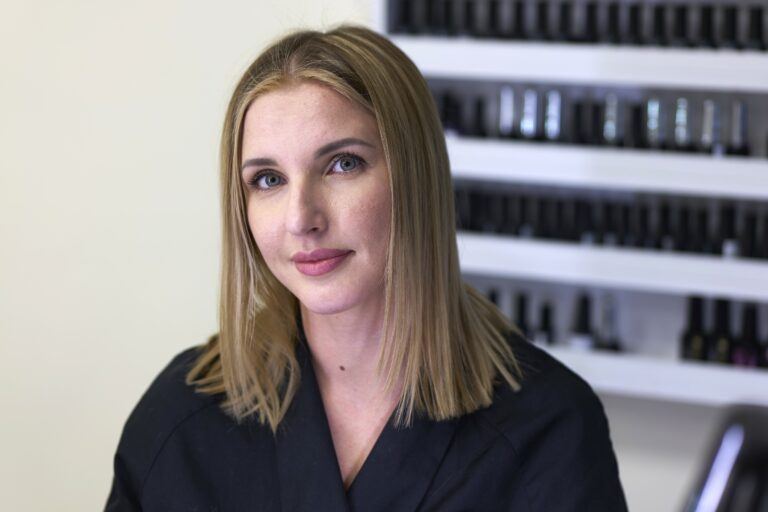
Natalia wanted her child to escape the war: how a single mother set up a successful business in Lithuania
More campaign pages:
Interested in the latest news and opportunities?
This website is managed by the EU-funded Regional Communication Programme for the Eastern Neighbourhood ('EU NEIGHBOURS east’), which complements and supports the communication of the Delegations of the European Union in the Eastern partner countries, and works under the guidance of the European Commission’s Directorate-General for Neighbourhood Policy and Enlargement Negotiations, and the European External Action Service. EU NEIGHBOURS east is implemented by a GOPA PACE-led consortium. It is part of the larger Neighbourhood Communication Programme (2020-2024) for the EU's Eastern and Southern Neighbourhood, which also includes 'EU NEIGHBOURS south’ project that runs the EU Neighbours portal.

The information on this site is subject to a Disclaimer and Protection of personal data. © European Union,







